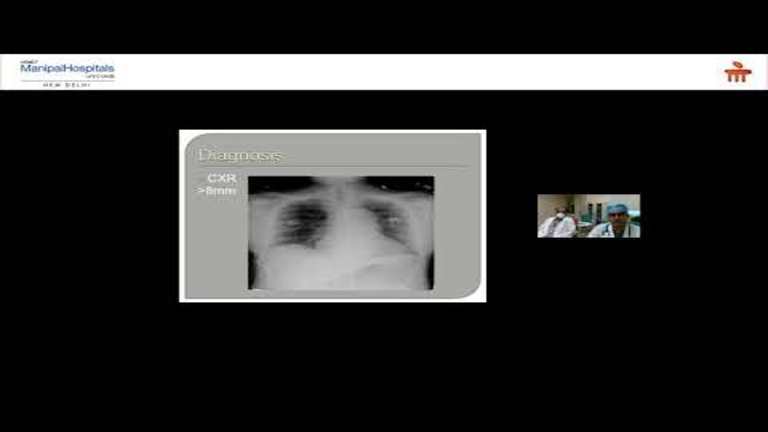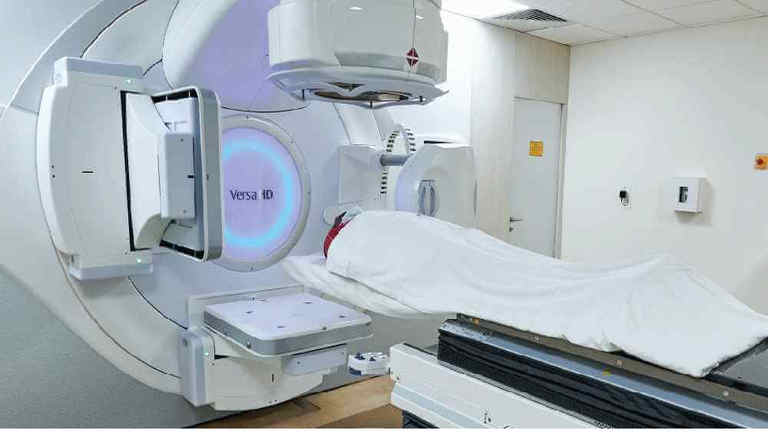

Radiology
Radiology Center in Delhi
Manipal Hospital’s Department of Radiology is highly equipped with the latest technological advancements and exceptionally skilled staff who are committed to providing accurate diagnosis and radiological services to patients.

OUR STORY
Know About Us
Why Manipal?
- Manipal is one of the leading healthcare providers in the country with national and international repute.
-
Manipal Hospital Delhi has state-of-the-art equipment in the Radiology Dept. (3-Tesla Digital MRI, 128-slice MDCT, 3D/4D Ultrasound with dedicated obstetrics unit, Digital Radiography, Mammography and BMD).
-
24 x 7 diagnostic and interventional radiological support.
-
A highly qualified and well-experienced dedicated team of radiologists with diagnostic and interventional expertise. If you are looking for the Best radiology hospital in Delhi then Manipal Hospital is one such super-speciality hospital offering advanced radiology and imaging services.
Treatment & Procedures
Varicose veins are a symptom of weakened veins and valves in the legs. There are one-way valves that keep blood flowing upward from the legs toward the heart. When these valves don’t function properly, blood collects in the legs and pressure is built up. As a result, the veins become large, twisted and weak. Laser ablation treatment is done for this…
The department of radiology provides imaging services for procedures such as stenting or angioplasty, wherein a catheter is guided into clogged arteries. A small balloon accompanies the catheter to open the artery, thereby allowing blood flow to occur.
Interventional radiologists at Manipal hospital coordinate closely with the Department of Oncology to help in the treatment of cancer patients. Some common procedures and treatments used are IRE, pre-op embolizations, percutaneous interventions radiofrequency ablation or transarterial chemo-embolization (TACE) or transarterial radio-embolization (TARE)…
A biopsy involves the removal of small tissue samples or cells to diagnose the presence of a disease. This is generally an outpatient procedure and it involves minimal preparation
CT scan is done with the use of X-rays to take pictures of the patient’s body internally.
This is a common condition that is usually the result of atherosclerosis which affects those with scar tissue and cholesterol buildup. Treatment mainly consists of catheter-directed thrombolysis, angioplasty and stenting and catheter assisted thrombectomy.
Blood clots are known as thrombus form in the deep leg vein and can lead to serious permanent damage that is referred to as a post-thrombotic syndrome. It can also lead to pulmonary embolism which is life-threatening. Interventional radiology provides treatment for this condition through IVC filter, catheter assisted thrombectomy and catheter-directed…
MRI detects many conditions in the upper and lower regions of the body. It involves a powerful magnetic field that is combined with radio waves to produce images of the body’s internal structures. This includes bones, organs, and soft tissues.
Patients that suffer from renal failure or chronic kidney disease will undergo replacement therapy, which is in the form of dialysis. The Interventional Radiology department provides treatment such as AV fistula savage (through angioplasty), central vein angioplasty or stenting, perm catheter placement, peritoneal dialysis (catheter placement).
In some cases, regular radiology exams will not be able to obtain a specific image of the patient’s internal body and so nuclear medicine exams come into play. These types of exams use gamma rays along with a special camera to obtain the required images.
The sudden blockage of major arteries in the lung is caused by blood clots. The lungs can be damaged by these clots. Interventional radiology provides treatment in the form of catheter-directed thrombectomy/thrombolysis.
TIPS is a transjugular intrahepatic portosystemic shunt procedure th at is used to treat internal bleeding in the esophagus or stomach, for patients with cirrhosis. Imaging is used during the procedure to connect the portal and hepatic vein in the liver. A metal device known as a stent will hold the connection open, allowing blood flow from the bowel…
This therapy involves the use of cold, hot or chemical agents to treat cancerous tumors. Manipal hospital’s department of radiology specializes in the use of cryotherapy and microwave for tumor ablation.
Uterine fibroid embolization is used to treat fibroid tumors in the uterus. A catheter is steered through an artery to the uterus using fluoroscopy (x-ray imaging). It is a minimally invasive procedure and it is highly effective in pain reduction from fibroid tumors that are generally associated with menstrual bleeding.
If abnormalities are detected in the breast after a mammogram but cannot be physically detected, then a thin write inserted by a needle is used by the doctor to obtain tissue samples for a more accurate diagnosis of a breast mass.
X-rays are used to obtain images of the internal regions of the body. This helps doctors make accurate diagnoses

Treatment And Procedures
Diagnostic services:-
-
State of the art 3 Tesla wide-bore digital MRI system with whole-body imaging facilities including advanced functional brain imaging, tractgraphy, perfusion studies and cardiac imaging etc.
-
State of the art 128 slice MDCT scanner with whole-body CT scan facilities including Coronary angiography, peripheral vascular imaging, CT-enterography and low radiation dose screening facilities for lung cancer etc.
-
State of art USG Equipment with 3D/4D probes and whole-body scanning facilities including scanning of small parts and a dedicated Obstetrics ultrasound unit.
-
Digital X-ray including digital portable X-ray for efficient and low radiation dose imaging.
-
Digital mammography for breast imaging and state-of-the-art DEXA for whole-body bone mineral density estimation.
Contact us to get the best treatment at the best radiology centre in Delhi.

Facilities & Services
Interventional services
(1) Diagnostic procedures
- Image-guided FNAC, Biopsy (neck nodes, lung, breast, liver abdominal masses, bone lesions etc.).
(2) Therapeutic procedure
(a) Non vascular interventions:
-
Catheter drainages/aspirations.
-
PTBDs/PCNs with stenting.
-
RFA/Microwave ablation of tumours.
-
Nerve blocks/facet joint intra-articular injections.
(b) Vascular interventions:-
- Venous/arterial catheter placement and IVC filter placement.
- Intravascular thrombolysis.
- Embolization of tumours (TACE, TARE, TAE) and Embolization of bleeding points.
- Embolization/coiling of aneurysm/pseudo-aneurysm, uterine AVMs and bronchial artery embolization in haemoptysis.
- Hepatic venous pressure gradient (MVPG), trans-jugular liver biopsy (TJLB), TIPS (BRTO).
Interventional Radiology (IR) is a subspecialty of radiology that uses image-guided, minimally invasive procedures for accurate diagnosis and treatment. An interventional radiologist is a physician who uses image guidance and specialised procedures to obtain access to the body's different organs and blood vessels. Manipal Hospitals houses the highly skilled Best Interventional Radiologist in Delhi.
Procedures:
-
Pre & post-transplant assessments of liver and kidney donor/recipient patients have been done regularly.
-
Pre-surgical evaluation/planning of critical cases including complex cardiac cases before surgery.
-
Multiparametric MRI for evaluation of prostate and breast cancer.
-
Pre-surgical evaluation of focal brain lesions with functional MR and DTI for uneventful surgery.
-
Evaluation of stroke patient in a window period for their uneventful recovery.
-
Coronary CT Angiography and Peripheral Vascular CT Angiography.
-
Pulmonary Angiography and Peripheral CT Venogram as part of DVT Imaging protocol
-
CT Angiogram for Triple rule out in chest pain patients
-
Facilities for virtual bronchoscopy and virtual colonoscopy with MDCT unit.
-
Low radiation dose screening facility for lung cancer in a high-risk individual.
Noteworthy cases:
- The department is regularly evaluating many critical cases for therapeutic planning (surgery, Radiotherapy & interventional procedures) for successful treatment.
- Critical cases of Aortic root aneurysms before cardiac surgery
- Critical case of Thoracic aortic aneurysm before aortic surgery followed by stenting of descending thoracic aorta.
- Critical cases of splenic artery/GDA aneurysms with Upper GIT bleed following acute pancreatitis. These pts were successfully stented/coiled in the department.
Visit the Best Interventional Radiology Hospital in Delhi or consult the Best Radiologist in Delhi to get comprehensive medical care.
FAQ's
A specialist will first gather general information about the patient's health, review their medical history, and conduct a physical examination. Based on the findings, further treatment or diagnostic procedures are recommended.
These are two separate examinations with different objectives. CT angiogram is non-invasive and done in a CT scanner. Whereas a catheter angiogram is an invasive procedure. CT angiogram depicts coronary vessels nicely with visualization of calcified/non-calcified plaques and has a very high negative predictive value (95-100 %). Hence this examination is more suitable to rule out coronary artery disease non-invasively. Get the finest treatment at the top radiology hospital in Delhi.
MRI can accurately localize the brain lesion as well as various motor / sensory tracks in the brain by DTI /tractography and helps neurosurgeon to avoid damaging these vital tracks during surgery at the radiology hospital in Delhi.
Digital X-ray provides more clear images with significantly reduced radiation to the patient compared to conventional X-ray. Get in touch with the Top X-ray Hospital in Delhi - Manipal hospitals.
No. X-ray has radiation hazard and is dangerous to the growing foetus in the womb.
Not exactly. In a healthy patient with normal renal function, contrast is not harmful to the body, because the contrast is excreted through the kidneys within 24 hours. In a patient with poor renal function, the contrast is accumulated in the body and is harmful and may damage the kidneys further. To know more, you can seek medical help from Best Radiology Specialist In Delhi or CT Scan Centers in Delhi.
Low dose CT scan can detect very small lung lesions (less than 1 cm) with minimal radiation to the body, hence helpful for diagnosis of lung cancer in very early stage.
Yes, it is very safe during pregnancy being a non-ionizing imaging modality.
Very safe compared to surgical procedure.
If done properly, there is no recurrence of the disease at all. Get the finest treatment at the best radiology hospital in Delhi.
It is used to examine structures in the brain, pelvis, legs, kidneys, neck, heart, and abdomen. It is also used to examine blood vessels. To know more, arrive at the finest radiology hospital in Delhi.
Clots, tumors, lumps, cirrhosis of the liver, internal bleeding of organs are a few of the common disorders that require immediate radiological testing.
Most radiology tests are minimally invasive and not painful. In the case of a painful procedure, the patient may be given local or general anesthesia depending on the procedure involved. Visit the leading radiology hospital in Delhi to know more about it.
Equipment used include x-ray tubes, radiographic tables, monitors and image intensifiers.
Radiology tests are mostly accurate but sometimes doctors may need to prescribe further tests to be sure of a diagnosis. At Manipal, we ensure accuracy in radiological testing.
The nurse or technologist will insert the IV line into a vein in the hand or arm. Small amount of blood is taken before the procedure begins and a sedative is provided. When the catheter has to be inserted, local anaesthesia is given to the patient to avoid pain. The catheter is inserted into a mall slit and guided through the arteries to areas that need to be examined.
Annual health checkups and discussions with your doctor about risk factors and preventive methods should never be overlooked. It is important to get regular checkups to maintain good health.
Manipal Hospitals is dedicated to providing high-quality, personalised care and building long-term partnerships with its patients. Our Radiology department and its patients are a testament to this. Contact us to know more about radiological testing and book an appointment with one of our radiologists today.


















.png)



